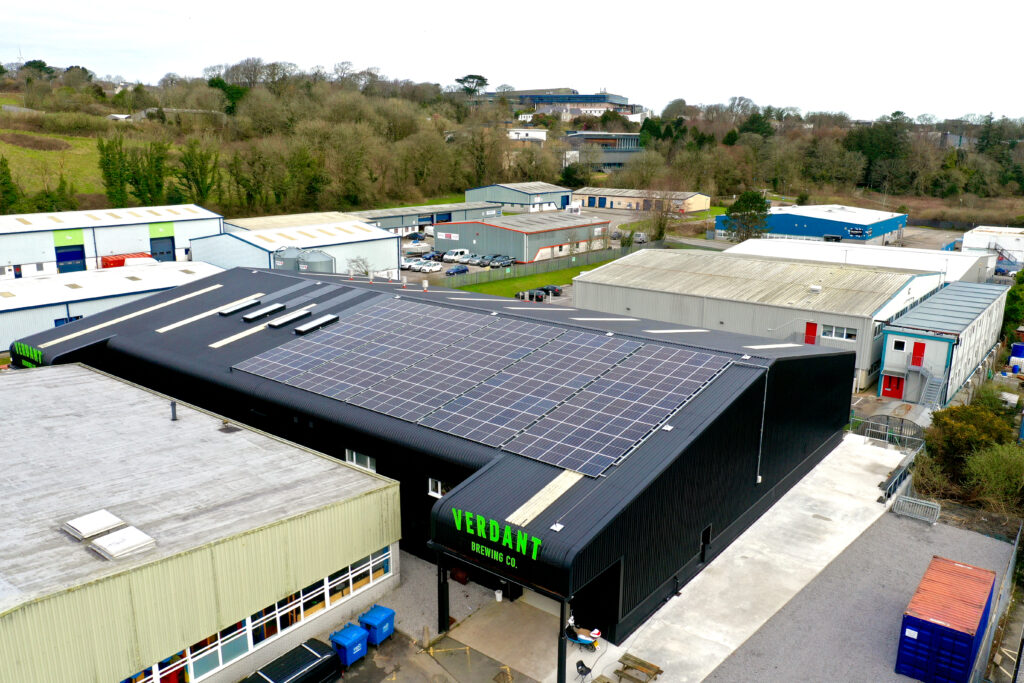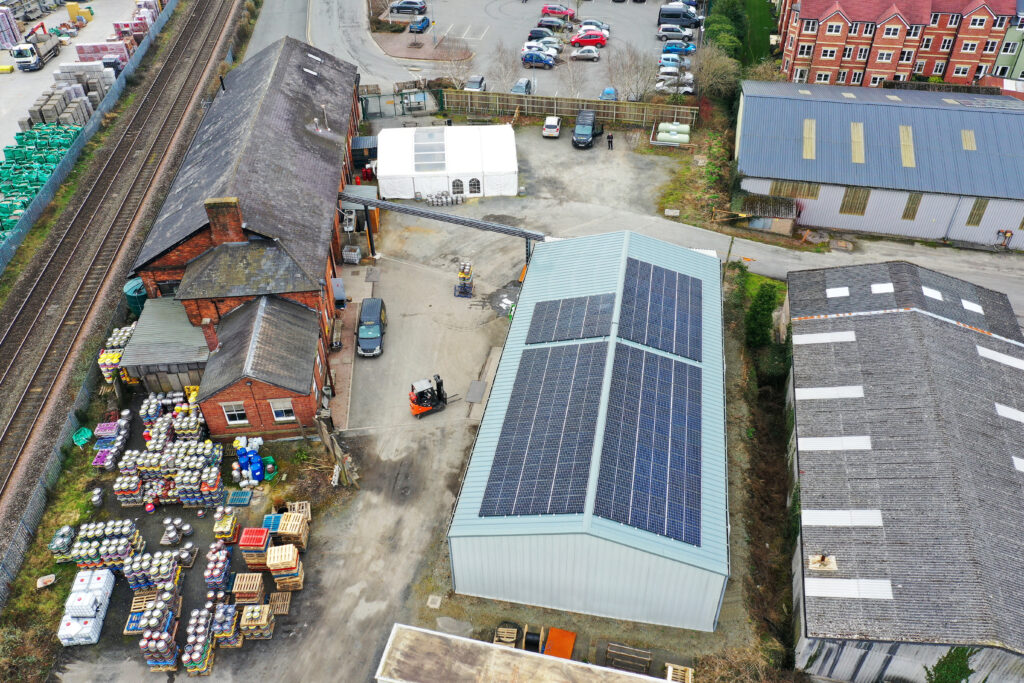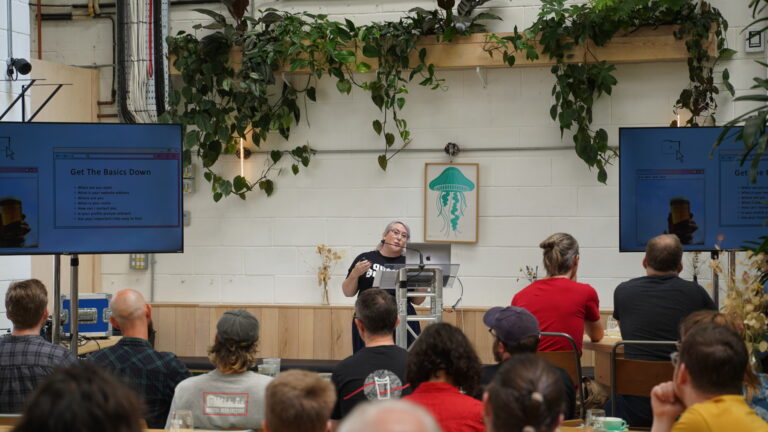Brewers are increasingly looking to renewable energy to power their operations and meet their sustainability targets. Here Ed Lennon, the commercial manager of renewable energy company CleanEarth, outlines the commercial and cultural factors that make solar power such a good fit for UK breweries.
The UK emitted around 400 million tonnes of greenhouse gases last year. While that was down by a half from 1990, we still have a long way to go before we reach net zero.
The good news is that what’s good for the climate can also be good for your bottom line. “Solar and wind are by far the cheapest sources of power today,” says Ed Lennon. “And the gap between renewables and fossil fuels just keeps getting wider.”
That means that businesses can, at the very least, buy their electricity from a low-carbon supplier without the kind of premiums that sustainability pioneers used to have to pay.
It also means that self-generation is a viable option for far more businesses, with payback periods down to as little as three years and massive cost savings over the 25-year life of the system.
“The cost of solar generation has come down 80% in the last decade,” says Ed. “As a result, our clients are now paying as little as one third of what their power company was charging them.”
Lower cost, lower risk
According to the Department for Business, Energy and Industrial Strategy*, UK manufacturers pay an average of 10p per kilowatt hour (kWh) for their electricity – with all but the very largest paying 11p to 14p.
By contrast, CleanEarth have installed solar PV systems in recent months that are generating for as little as 3.6p per kWh (see the Ludlow Brewing Company story below).
But the headline unit cost is not the most important thing. As Ed points out, “the key is that the price is effectively fixed at this low rate for the next 25 years! That takes a big chunk of risk out of your financial planning, because you don’t have to factor in price inflation and volatility.”
While prices have been fairly flat for the past 12 months, previous years were a lot more volatile and the trend has been steadily upwards – rising by 30% over the last five years and more than 50% over the last decade.
Shared values
The move to renewables in the brewing industry is not, however, driven only by the commercial argument or the government’s emissions targets.
It’s also motivated by the respect that brewers hold for the natural environment that provides their essential ingredients, and by the recognition that a sustainable future relies on our responsible stewardship of the environment.
Ed Lennon’s take on this is: “Most breweries take pride in the provenance of their ingredients and the naturalness of their products. And that’s certainly a factor in the beers I choose to drink. Knowing the ‘craft’ that goes into making a craft beer just adds to the pleasure.”
If you work with a product that’s so tied to the land and to nature, you’re unlikely to be indifferent to how they are treated. And climate change is already affecting how we grow and harvest those natural resources.
As Ed reminds us, “it may feel like we’ve been talking about it forever, but the reality is that the climate emergency has barely started. So it’s great to see UK breweries of all sizes stepping up and investing in renewables.”
Direct to consumer – cans over cask
With the onset of the covid pandemic, many breweries had to adapt their business model to survive. For the likes of Verdant Brewery (see below), this meant moving away from cask beer – at least for the short to medium term – and focusing on canning beers that could be sold direct to consumers, or via bottle shops and online suppliers.
The installation of canning lines, while crucial to keeping the business running, has increased the electricity consumption of the breweries, placing more importance on self-generation through on-site renewables.
Key questions
For any business that’s considering solar, or wind power (CleanEarth do both) there are a few key factors that need to be considered.
Geographical location and the size and type of building are fundamental. As Ed Lennon explains, “Probably 90 per cent of UK breweries are of a size that works for roof-mounted solar. Only the very biggest need to look at wind turbines as an option. And for solar, the further south you are, the more sunshine you get.”
Another consideration is the electricity usage profile. “You want to size the solar array to maximise the amount of generation that’s consumed on-site,” says Ed. “So we analyse the consumption profile over time and size the system to optimise the commercial returns.”
Ownership of the brewery building can also be an issue, as a freeholder won’t need to negotiate with their landlord to get the installation approved. But this doesn’t have to be a stumbling block for leaseholders, as more commercial landlords wake up to the advantages of renewable generation for their tenants.
Ed Lennon sums things up: “There are a number of variables that make a project feasible or not, but we can arrive pretty quickly at a confident projection. We’ve done several hundred commercial installations, so we’re familiar with all the issues – and we’ve learned how to overcome some interesting challenges!”
* Source: BEIS 25 March 2021: Prices of fuels purchased by manufacturing industry in Great Britain
CASE STUDY – VERDANT BREWING CO. PENRYN, CORNWALL

- System size: 67 kWp
- Number of panels: 200
- Annual output: 70,000 kWh
- Annual carbon saving: 18 tonnes
Founded in 2014 by directors James Heffron and Adam Robertson, Verdant have gone on to establish themselves as one of the UKs leading craft breweries with their distinctly “hop” focused, hazy IPA style and distinctive branding.
From humble beginnings in James’s kitchen, via a £200 a month shipping container, Verdant now find themselves proud occupants of a 1,500m2 premises in Penryn, just down the road from their previous base.
Solar power would form a key aspect of the brief when Verdant were specifying the re-fit, and it gave the Falmouth-based brewers a fantastic opportunity to harness abundant solar resources from their southernly location.
Having identified the new brewery’s location, Verdant embarked on a complete refurbishment of the site, including a completely bespoke 35 hectolitre brew kit. At the same time, they issued a tender for the installation of a solar PV system on the building’s roof.
CleanEarth’s Ed Lennon recalls, “It was a great project to pitch for, as the refurb called for a strong visual style that the solar PV needed to complement.”
The logistics were also demanding, as the solar installation needed to dovetail with the main refurbishment project plan. This required detailed liaison with the various on-site contractors, and a very tight timeframe – operational demands that CleanEarth were very familiar with.
“Ed and the rest of the CleanEarth team clearly grasped the logistical complexities of the project,” says James. “It was reassuring for us to know they had the experience and the can-do attitude that the job demanded.”
Even once the installation is finished the job is never complete. CleanEarth have taken on the daily monitoring and maintenance of the system to maximise output and minimise any system downtime. And in order to make the most of every single “drop” of electricity, CleanEarth are now working with Verdant to incorporate a solar diverter that will use excess solar generation at the weekend to heat water for brewing.
CASE STUDY – LUDLOW BREWING CO. LUDLOW, SHROPSHIRE

- System size: 36 kWp
- Number of panels: 108
- Annual output: 30,000 kWh
- Annual carbon saving: 7 tonnes
Ludlow Brewing Co have been operating out of their converted Victorian railway shed since moving there in 2008. As demand and production increased, they added an adjacent cold storage unit in 2015 – and the roof of this building was tailor-made for installing solar panels.
When Owner Gary Walters contacted CleanEarth for a quote, he was encouraged to learn that the project was eligible for a grant from the Marches Renewable Energy project (MarRE). With experience of such funding schemes in several counties across England and Wales, CleanEarth’s team were able to help with the grant application as well as the system’s design and installation.
“Their attention to detail and obvious technical expertise gave us confidence,” says Gary. “And it did no harm that they were competitive on price too!”
The system was designed so that close to 100% of its generating output is consumed on-site, and it will meet between 10% and 20% of the brewery’s power demand. It will also play a key role in Ludlow’s end goal of brewing from 100% renewable energy!
The new system adds to an existing 4kW system which was installed a number of years ago, and continues the growing trend for businesses that are now extending or adding additional solar PV systems once their original investment has been paid off. As solar PV is now subsidy-free, this does not jeopardise any existing “feed in tariff” they may get from older systems.
With 50% funding from MarRE, the payback period on Ludlow Brewing Co’s investment dropped to below three years. And their unit cost of electricity plummetted to just 3.6p per kWh – the kind of rate normally only enjoyed by the very largest industrial energy users.








